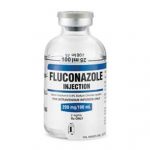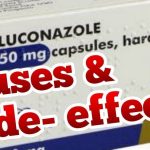Contents
- 1 How Long Can You Live After a Heart Transplant? Survival Rates
How Long Can You Live After a Heart Transplant? Survival Rates
Advancements in medicine and technology have greatly improved heart transplant survival rates. Recent studies show that the average life expectancy of a heart transplant patient is 9.16 years.
What are heart transplant survival rates?
The survival rates for heart transplant patients are as follows:
- 1 year: 75%
- 5 years: 64%
- 10 years: 53%
- 15 years: 40%
- 20 years: 26%
The number of heart transplant recipients who have been followed for more than 20 years is increasing. The first year after surgery is crucial for survival.
Survival rates depend on complications, age, other medical issues, lifestyle, and activity level.
What is a heart transplant?
A heart transplant, or cardiac transplant, is the gold standard treatment for end-stage heart failure.
During the procedure, a damaged heart that is beyond repair is replaced with a healthy heart from a donor. Over 3,000 heart transplants are performed in the United States every year.
6 potential complications of a heart transplant
Possible complications include:
- Rejection: Your body may reject the donor heart. Medications can help reduce rejection.
- Infections: Immunosuppressive medications can increase the risk of infections.
- Malignancy: Immunosuppressive medications can increase the risk of cancer.
- Cardiac allograft vasculopathy: Thickening and stiffening of the arteries in the heart can impede blood flow.
- Graft dysfunction: The donor heart may not function properly.
- Chronic kidney disease: Immunosuppressants can cause kidney damage.
IMAGES
Who are candidates for a heart transplant?
Anyone under the age of 69 diagnosed with end-stage heart disease with a prognosis of death within 1 year is a candidate for a heart transplant.
Heart conditions that can lead to a heart transplant include advanced heart failure, arrhythmia, cardiomyopathy, congenital heart disease, coronary artery disease, heart valve disease, and failure of a previous heart transplant.
Factors that may disqualify someone from receiving a heart transplant include active infection, alcohol or drug abuse, kidney or liver disease, and cancer.
What is the recovery process after a heart transplant?
After a heart transplant, a recovery program is essential for maintaining good health.
Medications
Immunosuppressants, or antirejection drugs, are taken for life to prevent rejection of the new heart.
Heart-healthy diet
A balanced diet of fruits, vegetables, and whole grains supports heart health and reduces the risk of complications and future heart disease.
You must exercise caution when preparing food to avoid food poisoning.
Exercise
Regular exercise helps lessen side effects of medications and maintains good blood pressure, cholesterol, and weight.
How to monitor symptoms after a heart transplant
Regular medication, an active lifestyle, and attending medical appointments reduce the risk of rejection and infection.
Recognize signs of rejection, such as swollen ankles, shortness of breath, and fatigue. Infections may present with symptoms like a fever or cough.
If symptoms occur, a biopsy and tests can confirm rejection or infection.
Prevent infections by practicing good hygiene and avoiding sick individuals.
By clicking "Submit," I agree to the MedicineNet Terms and Conditions and Privacy Policy. I also agree to receive emails from MedicineNet and I understand that I may opt out of MedicineNet subscriptions at any time.


